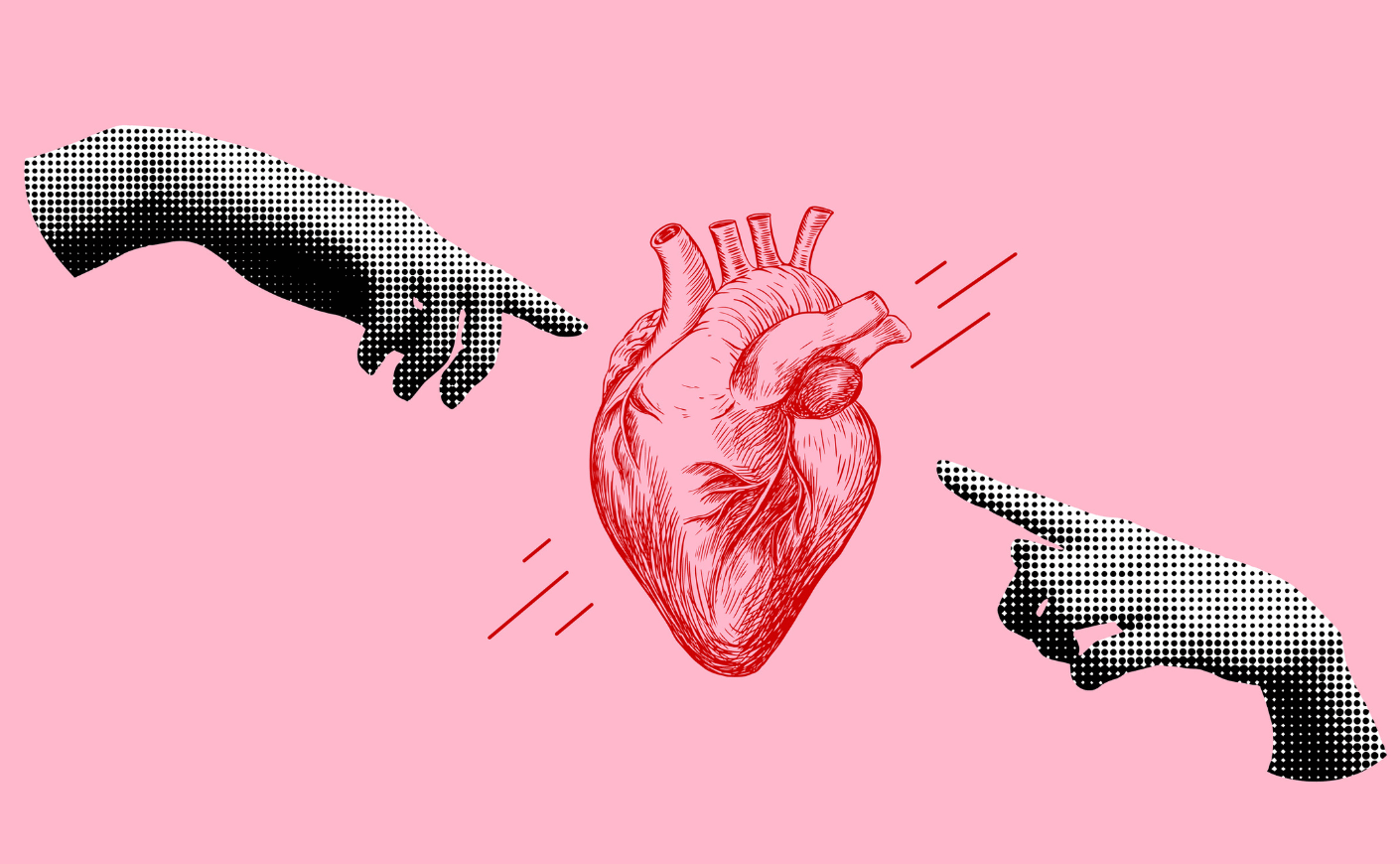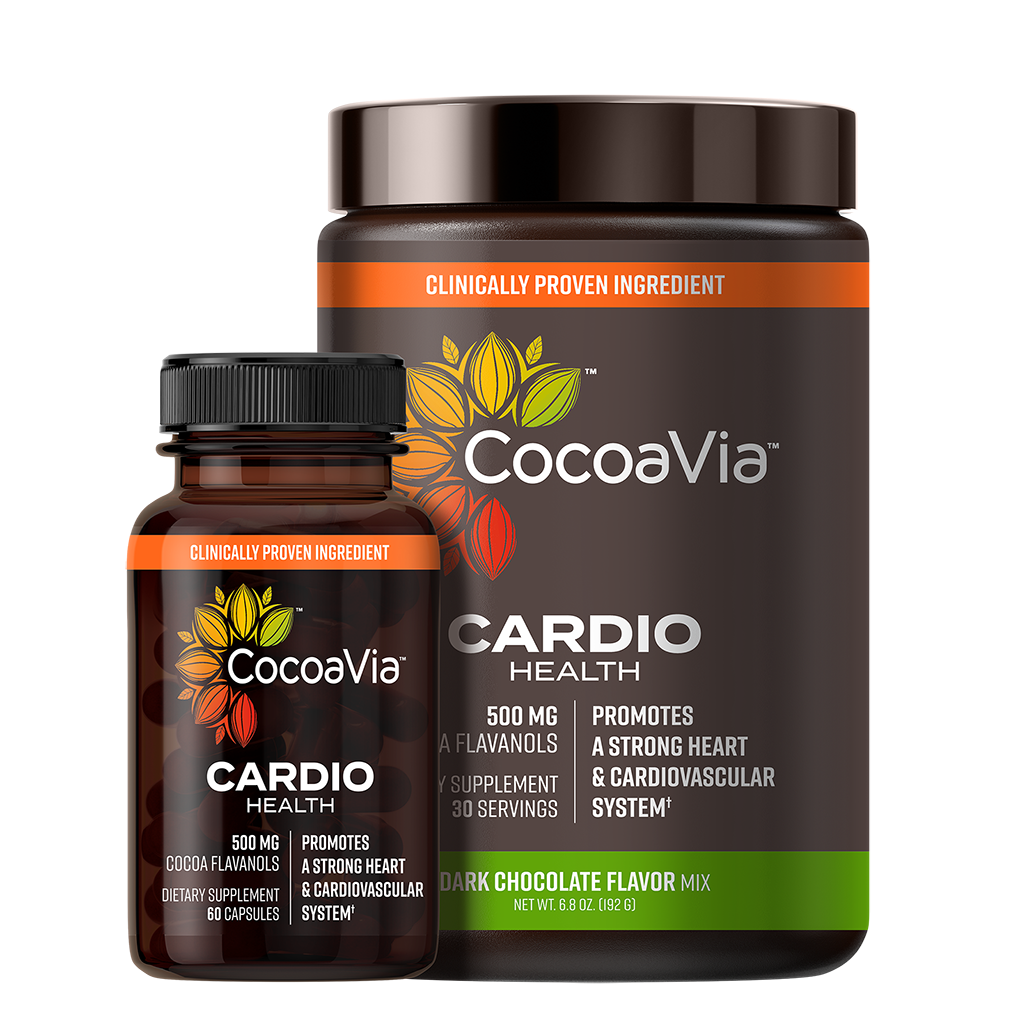Cardiovascular-related issues are often seen as an inevitable part of aging, but that couldn't be further from the truth. In fact, a significant portion of cases — up to 80 percent — can be avoided with the right lifestyle choices. “Heart health remains a top concern for the U.S. population,” says Michelle Routhenstein, a registered dietitian with a specialization in cardiovascular health, “and there are many ways to proactively support it.”
Despite this fact, plenty of myths about heart health persist, leading people to underestimate the power they have on influencing their cardiovascular well-being. Simple lifestyle choices, such as incorporating more nutrient-rich foods into your diet, staying active, and even taking a heart-healthy supplement, can make a significant difference in protecting your pump.
We asked Routhenstein to help us debunk four common myths about heart health, and to shed light on the truth behind each one.
The Most Common Myths About Heart Hearth
Myth #1: If you eat a “clean” diet, you don’t have to worry about heart health
Some people believe that because they avoid red meat, refined sugars, and junk food, they’ve already addressed their well-being.
“This belief is quite common,” says Routhenstein. “What people often don't realize when it comes to heart health is that while it’s important to limit certain foods, what you add to your diet is just as crucial for protecting your blood vessels as what you take away. This includes ensuring we consume adequate amounts of fruits, vegetables, whole grains, legumes, and protein.”
For example, if you eliminate red meat and limit foods that increase cholesterol, your cholesterol levels might not rise, but they won't necessarily decrease either. That’s because you're not consuming the foods that help bind and excrete cholesterol, explains Routhenstein. The same principle applies to blood vessel health: Reducing your sodium intake is important, but if you're not consuming sufficient potassium or foods that increase nitric oxide, your arteries might not dilate as they should.
“Our goal is to optimize blood vessel health, so it’s essential to focus on what you’re adding to your diet,” she says. “Ideally, your nutrients should come from food, but there are times when supplements may be necessary to help achieve your goals. I often recommend CocoaVia to clients who don’t produce enough nitric oxide naturally and could benefit from a little extra support. This supplement contains 500 milligrams of flavanols, which help increase the body’s natural nitric oxide pool and help retain healthy cholesterol and blood pressure levels.”
CocoaVia’s premium Cardio Health cocoa flavanol supplements are backed by more than 20 years of scientific research. Made with a proprietary cocoa extract, they’re proven to enhance cardiovascular function by improving circulation, maintaining arterial flexibility, and supporting healthy blood pressure. Each daily serving ensures you receive 500 mg of flavanols (within the recommended intake amount from the Academy of Nutrition and Dietetics), a level that may be difficult to achieve through food alone.
"Many of my clients who try CocoaVia love the taste, which makes it easy for them to incorporate it into their daily routine," says Routhenstein. "When someone is worried about heart issues in their family or other risk factors, adding something beneficial that they actually enjoy makes it easier to turn it into a daily habit. It doesn’t feel like a burden, and that makes all the difference."
Try CocoaVia
CocoaVia
For a limited time, you can enjoy an extra 20 percent off in single, bulk, or subscription purchases of CocoaVia. Just use promo code KCM2025 at checkout.*
Myth #2: Heart health issues are only a concern for men
Not by a long shot. Cardiovascular-related issues are the leading cause of mortality and morbidity globally, surpassing even breast cancer, yet many people are unaware of that fact. "Historically, most of the research focused on men, so women’s heart health is often dismissed or overlooked. I'm a strong believer that women need to be proactive participants in their healthcare, especially during the menopausal period," says Routhenstein. "This is a critical time when estrogen levels decline, and many people don’t realize just how much estrogen protects women in various ways."
One estrogen's key roles is to make our arteries more elastic, allowing for better blood flow. And as estrogen levels drop, it becomes even more important to monitor blood pressure closely, aiming for optimal standards like 110/70, shares Routhenstein. "Regular home testing and vigilance are crucial, especially since the risk of cardiovascular-related issues increase during this phase. However, increased risk doesn’t mean inevitable doom — it just means we need to stay on top of it and recognize that women should take a proactive approach for heart health, too."
During the menopausal transition, women’s nutrient needs also change, and it’s crucial to focus on eating the right foods. "Many women experience a shift in belly-fat distribution during this time, which can lead them to go on extreme caloric deficits. But when you’re solely focused on losing weight and drastically cutting calories, you’re not nourishing your gut microbiome or supporting your body’s changing needs, which can actually make symptoms worse," says Routhenstein. "Instead, we should ask ourselves: Are we getting enough fiber? Are we consuming adequate amounts of lean protein, omega-3 fatty acids, folate, calcium, vitamin D, and magnesium? Are we providing our blood vessels with the nutrients they need? Since this is a time when our arteries become less elastic, our nitric oxide levels may decrease. In such cases, it might be beneficial to supplement with something like CocoaVia to help support arterial health."
Myth #3: Carbohydrates are bad for your heart
First, keep in mind that not all carbs are the same. “No one’s suggesting you should load up on soda, juice, candy, or refined carbs,” says Routhenstein. “But carbs encompass a wide variety of foods, including whole grains, fruits, vegetables, dairy, beans, and legumes. So yes, we do need to reduce the consumption of refined sugars, as they can increase insulin levels, lead to more free fatty acids, cause blood clotting, and contribute to insulin resistance, all of which can impact heart health.” On the other hand, carbs that haven’t had their fiber stripped out (like oats) are incredibly nutrient-dense.
“Oats contain a type of soluble fiber called beta-glucan, which helps lower cholesterol levels and increases the production of butyrate — a compound in the gut that helps reduce tension in our arteries,” says Routhenstein. “I often hear people say they avoid oats because they’ve been told only goats should eat them. When I hear that, I encourage them to take a step back and consider whether there’s any scientifically valid reason behind that advice. There’s a lot of fear mongering out there, so it's important to think critically and ask ourselves, Does this make sense? before blindly following medical advice. There should always be a reason behind your dietary choices.”
Also, studies have shown that very low-carbohydrate diets can increase the risk of plaque progression and atrial fibrillation. “This often boils down to nutrient deficiencies — if your body doesn’t get enough calcium, magnesium, and potassium, it can’t maintain a regular heartbeat. Without the viscous fibers found in carbs, we can’t effectively remove LDL cholesterol, which causes plaque to form. So we need to consider all of these factors and recognize the science and research behind them,” says Routhenstein. (CocoaVia's Cardio Health Powder is also a good source of fiber.)
Myth #4: Genetics alone determine your cardiovascular destiny
Research shows that individuals with a strong genetic predisposition to cardiovascular-related issues who manage their risk factors have a lower risk of cardiovascular events than someone with no genetic risk, but multiple uncontrolled risk factors. “Genes alone don't tell the whole story," explains Routhenstein. "It's the combination of genes and environment that does. But unfortunately, many people aren't aware of what they can do to lower their risk.”
If you know you're at risk, the question is, what are you doing to lower that risk?
People often don't realize their risk profile, so they don't take action until it's too late. “You can't feel high cholesterol or high blood pressure, so these issues often go unnoticed until something serious happens,” says Routhenstein. “I encourage everyone to know their numbers — blood pressure, cholesterol, and others — and optimize them based on your family history, medical history, and genetic predisposition.”
Ultimately, taking control of your heart health should be empowering. “If you know you're at risk, the question is, what are you doing to lower that risk? It's similar to managing blood pressure — some clients get anxious seeing high numbers on the monitor, but I encourage them to shift their mindset," says Routhenstein. "If your blood pressure is high, create an action plan: Go for a daily walk, drink hibiscus tea each afternoon, or take another positive step, then retest. This proactive approach reduces anxiety because you know what to do if something is off.”
That principle — understanding your body's needs and being proactive — applies to all heart-related risk factors. "Working alongside your healthcare team and a registered dietitian can help you navigate this journey," says Routhenstein, "and reduce the anxiety that often accompanies heart health concerns.” In other words, you’ve got the power to make change — not just in your daily dietary choices, but in keeping yourself fit and vibrant for decades to come.
The information provided on this site isn’t intended as medical advice, and shouldn’t replace professional medical treatment. Consult your doctor with any serious health concerns.
*This offer is valid until December 31, 2025, on any single, bulk, or subscription order of CocoaVia products sold at cocoavia.com; Limited to one use per e-mail.










